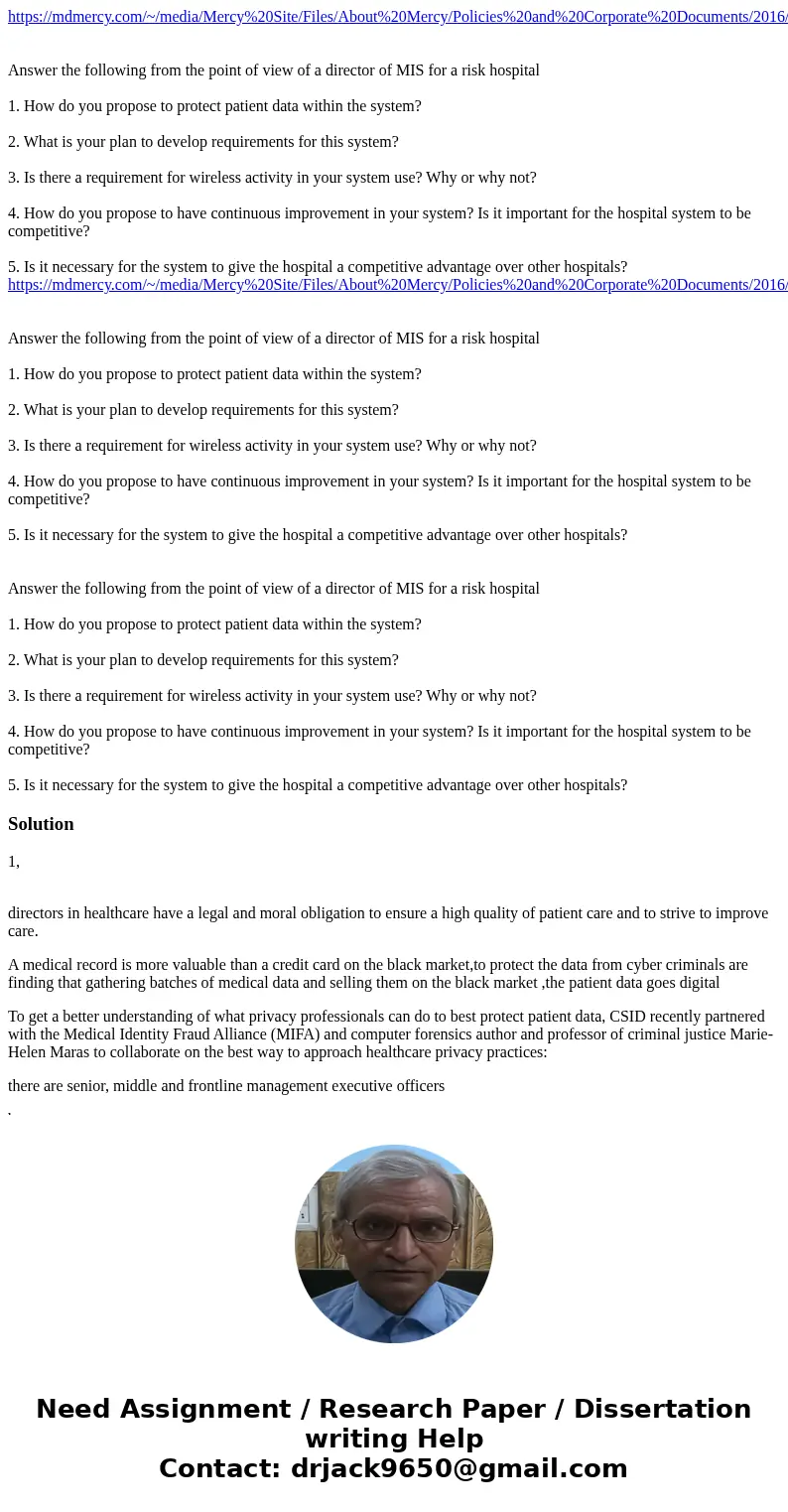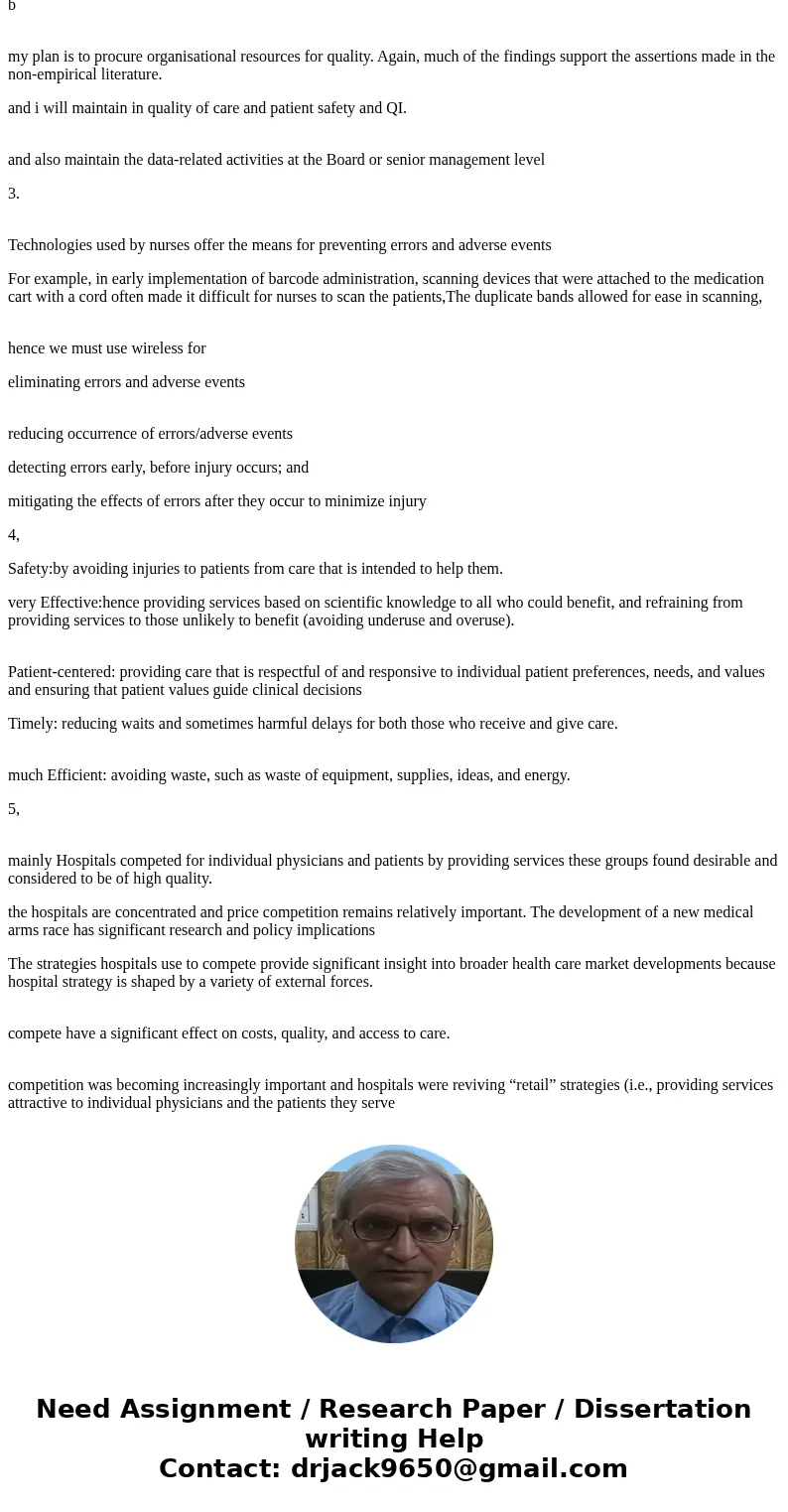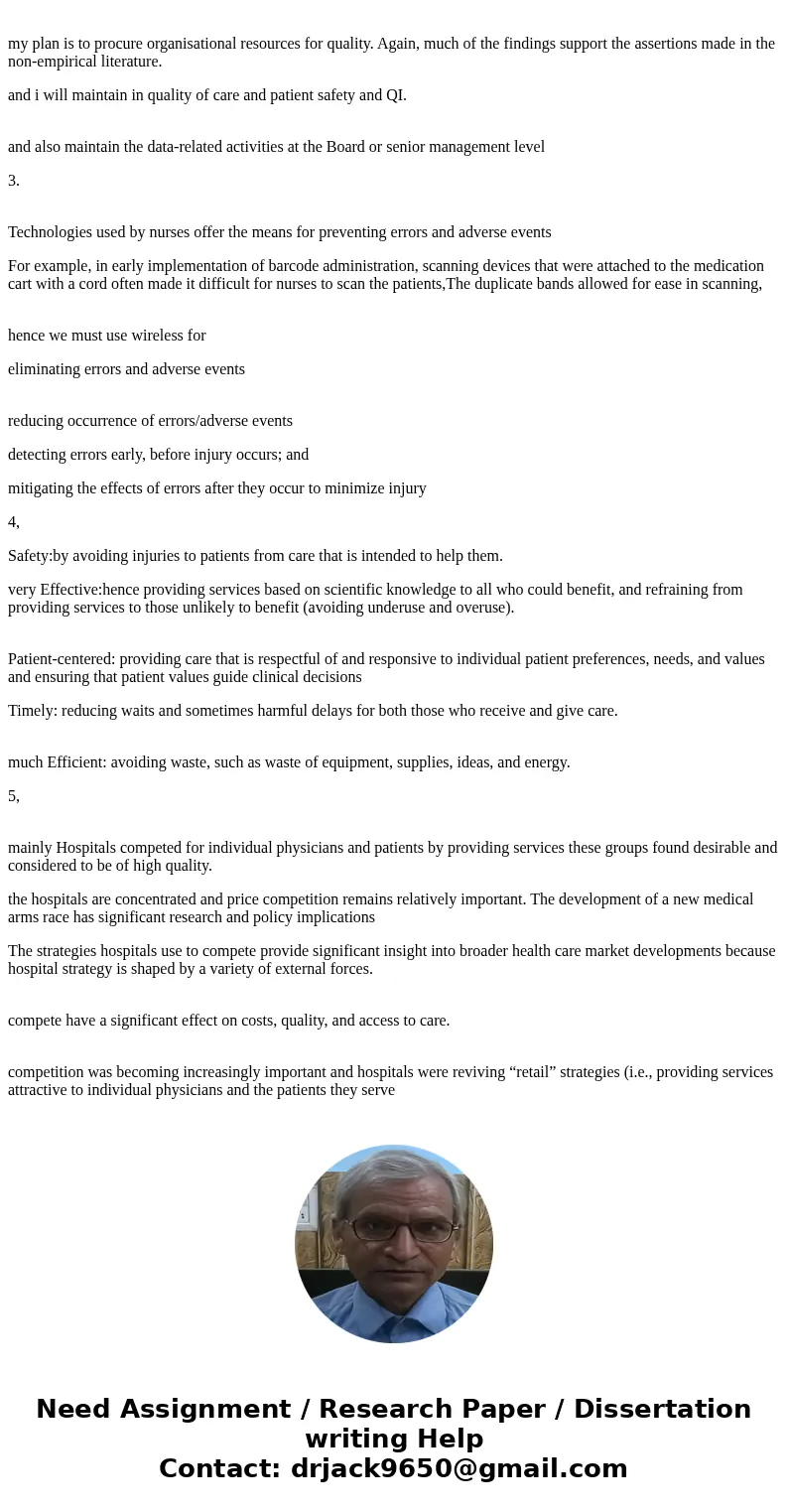httpsmdmercycommediaMercy20SiteFilesAbout20MercyPolicies20an
Solution
1,
directors in healthcare have a legal and moral obligation to ensure a high quality of patient care and to strive to improve care.
A medical record is more valuable than a credit card on the black market,to protect the data from cyber criminals are finding that gathering batches of medical data and selling them on the black market ,the patient data goes digital
To get a better understanding of what privacy professionals can do to best protect patient data, CSID recently partnered with the Medical Identity Fraud Alliance (MIFA) and computer forensics author and professor of criminal justice Marie-Helen Maras to collaborate on the best way to approach healthcare privacy practices:
there are senior, middle and frontline management executive officers
b
my plan is to procure organisational resources for quality. Again, much of the findings support the assertions made in the non-empirical literature.
and i will maintain in quality of care and patient safety and QI.
and also maintain the data-related activities at the Board or senior management level
3.
Technologies used by nurses offer the means for preventing errors and adverse events
For example, in early implementation of barcode administration, scanning devices that were attached to the medication cart with a cord often made it difficult for nurses to scan the patients,The duplicate bands allowed for ease in scanning,
hence we must use wireless for
eliminating errors and adverse events
reducing occurrence of errors/adverse events
detecting errors early, before injury occurs; and
mitigating the effects of errors after they occur to minimize injury
4,
Safety:by avoiding injuries to patients from care that is intended to help them.
very Effective:hence providing services based on scientific knowledge to all who could benefit, and refraining from providing services to those unlikely to benefit (avoiding underuse and overuse).
Patient-centered: providing care that is respectful of and responsive to individual patient preferences, needs, and values and ensuring that patient values guide clinical decisions
Timely: reducing waits and sometimes harmful delays for both those who receive and give care.
much Efficient: avoiding waste, such as waste of equipment, supplies, ideas, and energy.
5,
mainly Hospitals competed for individual physicians and patients by providing services these groups found desirable and considered to be of high quality.
the hospitals are concentrated and price competition remains relatively important. The development of a new medical arms race has significant research and policy implications
The strategies hospitals use to compete provide significant insight into broader health care market developments because hospital strategy is shaped by a variety of external forces.
compete have a significant effect on costs, quality, and access to care.
competition was becoming increasingly important and hospitals were reviving “retail” strategies (i.e., providing services attractive to individual physicians and the patients they serve



 Homework Sourse
Homework Sourse